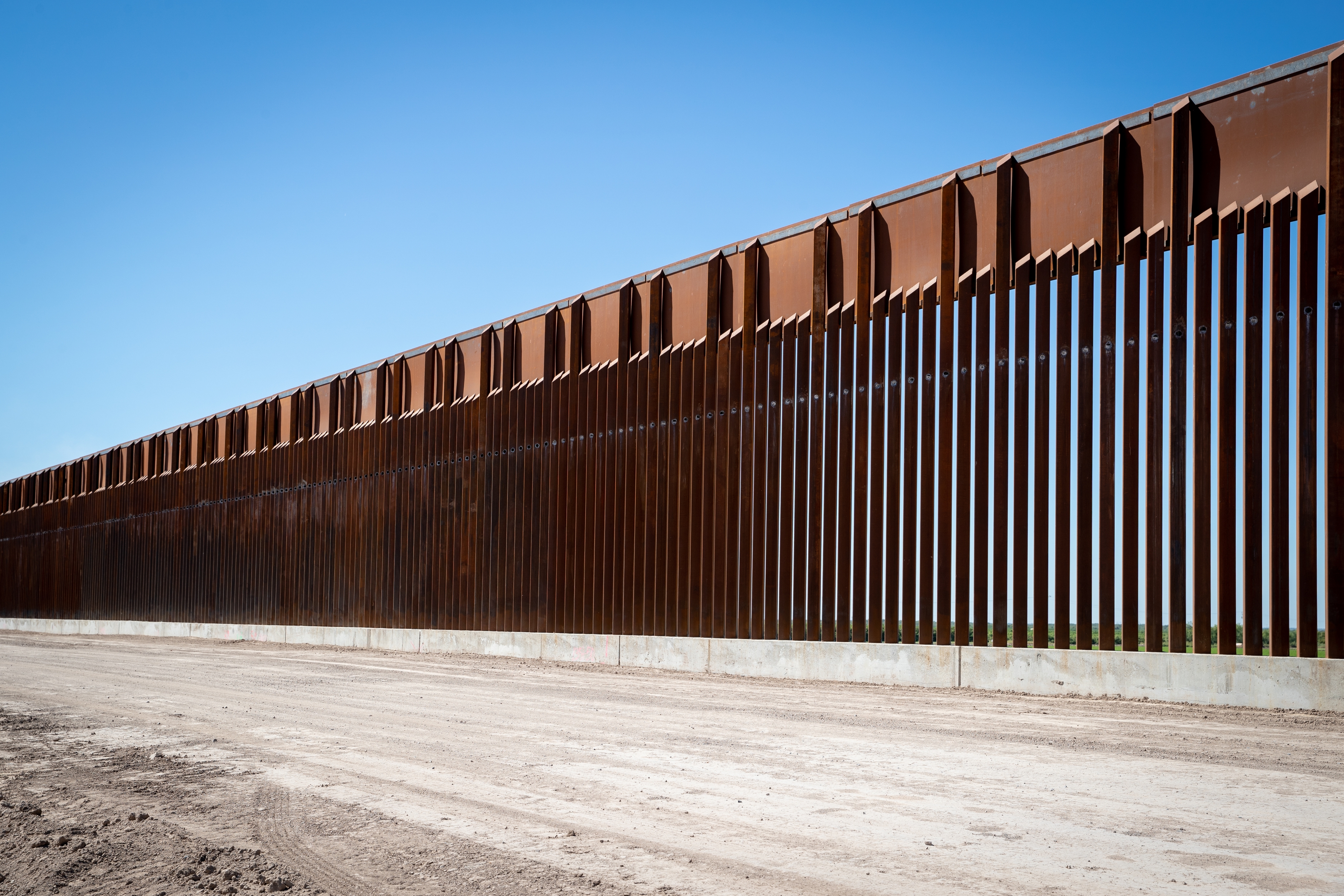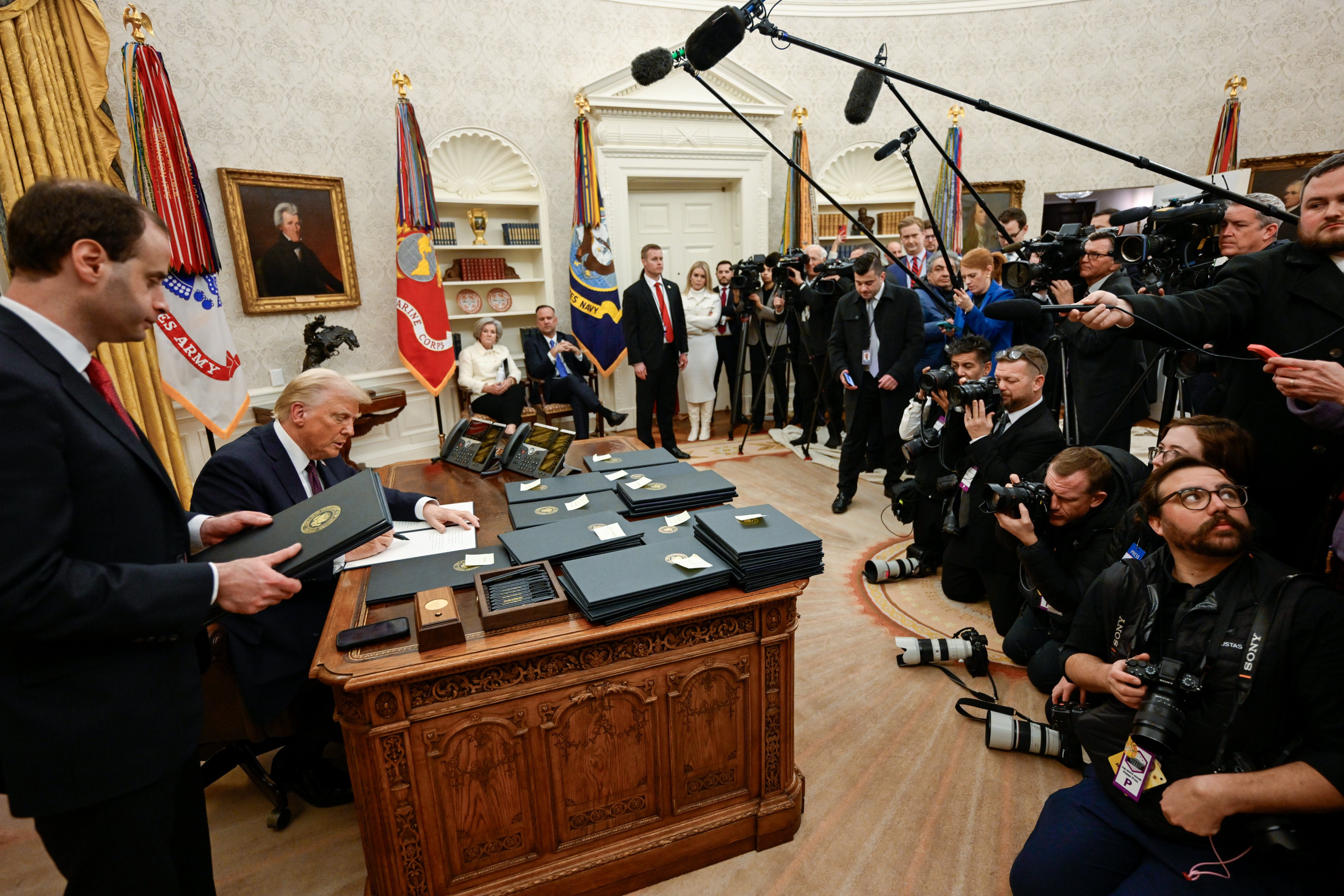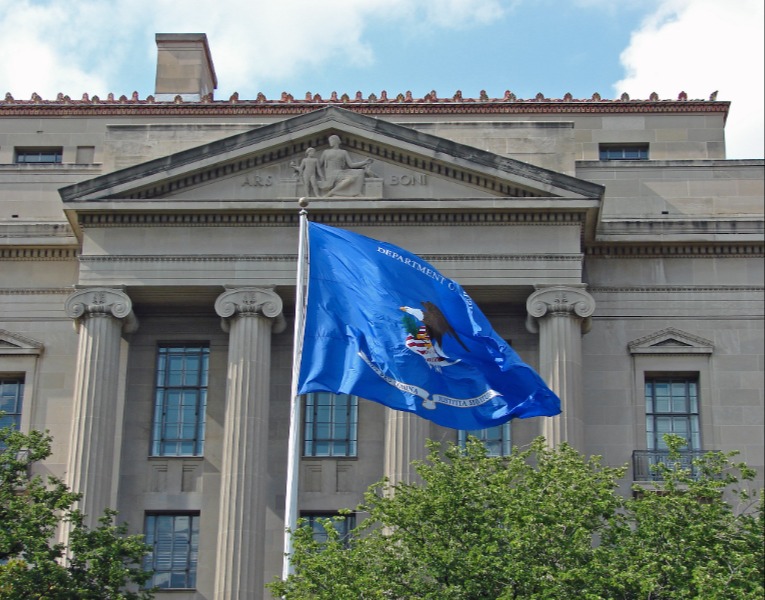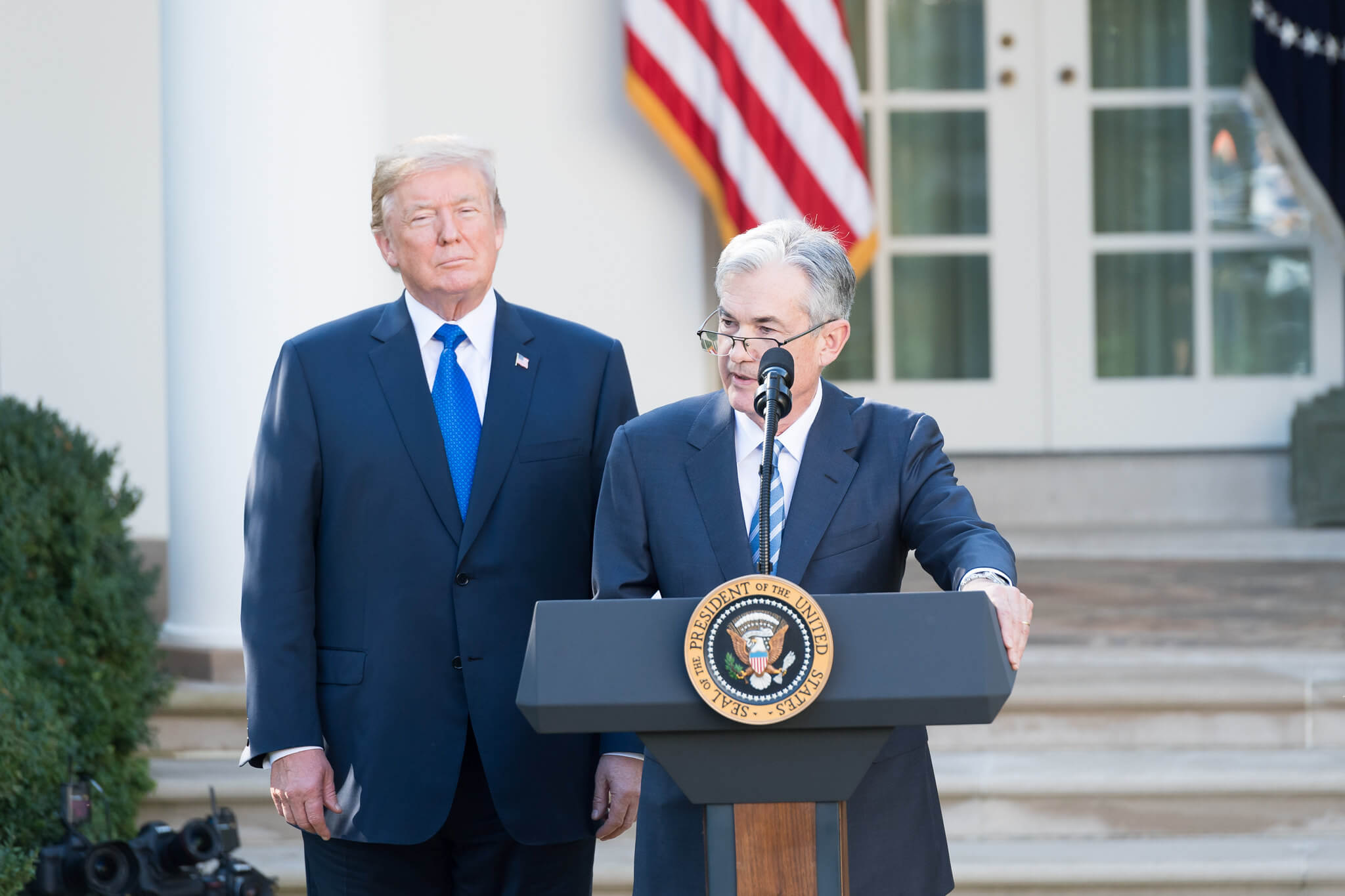First Circuit Highlights Role of U.S. Gunmakers in Border Crisis
The revival of the action brought by Mexico against American firearm giants signals a new path for lawsuits seeking to hold gun manufacturers liable.

Published by The Lawfare Institute
in Cooperation With

Editor's Note: The United States District Court for the District of Massachusetts on Aug. 7 dismissed the Mexican government's lawsuit against the gun manufacturers, ruling that Mexico lacks jurisdiction to bring the lawsuit. This piece does not discuss that decision, only the litigation preceding it.
Are the Biden administration’s policies responsible for reduced migration across the southern border? Was Vice President Kamala Harris truly the border czar? What is the real economic impact of increased migration flows? These are the immigration-related questions spread across the front pages of the major newspapers, and the U.S. Court of Appeals for the First Circuit is not at the center of them.
However, the court is at the center of a key dispute over a flow across this same border. This flow is not of people, but of guns, and it is not a flow into the United States, but from the United States into Mexico.
As the White House has repeatedly pressured Mexico to crack down on drug cartels’ cross-border smuggling of opioids, Mexico has responded that the U.S. must do more to combat the trafficking of firearms into its territory. In April 2023, the Biden administration announced that it would ramp up cooperation with Mexico to address both issues, including by directing the Bureau of Alcohol, Tobacco and Firearms and the U.S. Department of Justice to use new authorities to stem the flow of illegal guns.
Enter the U.S. Court of Appeals for the First Circuit. The appeals court issued a ruling in January with significant implications for the fight against the illegal gun trade in Mexico. The Mexican government alleges, in the case Estados Unidos Mexicanos v. Smith & Wesson Brands, that the largest American gunmakers knowingly arm Mexico’s criminal groups. Reversing a district court ruling dismissing the case, the First Circuit held that the 2005 Protection of Lawful Commerce in Arms Act (PLCAA) did not bar the claims. The $10 billion suit will, therefore, be allowed to proceed.
Plaintiff’s Arguments
Mexico brings suit in the case against the largest manufacturers of assault rifles—including Smith & Wesson, Barrett Firearms, Beretta, Glock, Century Arms, Colt, and Ruger—as well as a distributor of guns. It argues that the defendants arm criminals with nearly 350,000 firearms every year, causing a tenfold run-up in gun homicides since 2004 and requiring the Mexican government to divert resources from efforts to combat drug smuggling. According to the lawsuit, the gunmakers’ refusal to cut off dealers that supply the illegal firearm market proves that they have failed to fulfill their duty to monitor downstream sales. The suit contends that the defendants’ negligent acts and deceptive advertising facilitated the trafficking of firearms into Mexico’s criminal market, violating—among other laws—U.S. tort, deceptive trade, and public nuisance laws as well as the federal Gun Control Act of 1968 (GCA) and Mexico’s gun-import laws.
The success of these claims hinges in large part on whether they overcome PLCAA, a federal statute that has blocked the vast majority of civil suits against the gun industry. This law immunizes gunmakers and gunsellers from most civil actions involving others’ “criminal or unlawful misuse” of firearms. The Mexican government ties its claims to a narrow exception in PLCAA’s industry protections—what is called the predicate exception—which allows liability on various grounds once a plaintiff proves that a manufacturer or seller knowingly broke a law that regulates the marketing or sale of guns (a predicate law). To prove liability under this exception, the violation of law must be a proximate cause of the harm alleged. The Mexican government argues that the laws the defendants and their dealers have allegedly violated fall under this exception. Furthermore, the government contends that such violations proximately caused an injury in the form of increased costs for emergency and police services because those costs are the foreseeable result of the defendants’ violations of the predicate laws.
The Mexican government makes two particularly significant claims—which appear to be the ones on which the First Circuit is focused. First, it argues that American gun manufacturers deliberately facilitate the unlawful trafficking of guns into Mexico by designing, marketing, and selling military-style or high-capacity weapons with the understanding that these weapons will appeal to drug cartels. Mexico argues that the gunmakers knowingly aid and abet violations of laws regulating guns, such as the GCA. The lawsuit points to gunmakers’ failure to act on “a mountain of information” in the form of trace data and trafficking prosecutions that demonstrate a small number of their dealers supply a significant portion of the weapons used by Mexico’s cartels in violation of the GCA. The action alleges that this mountain of information puts the gun manufacturers on notice that their actions provide the central source of the cartels’ arsenal and are a proximate cause of the epidemic of gun violence in Mexico.
Second, the Mexican government argues that the gunmakers unlawfully sold machine guns in violation of the GCA. By designing and selling to civilians high-caliber assault rifles that can be easily modified into machine guns, which is illegal under federal law, the suit alleges that the gun manufacturers routinely supply and profit from gun trafficking to criminals in Mexico. (Although the Supreme Court recently struck down the federal regulation classifying these weapons as machine guns, the decision may not protect gunmakers from liability for selling the guns while the regulation remained in effect.)
Defendants’ Arguments
The defendants argue in a joint motion to dismiss the suit that PLCAA not only blocks the claims, but that Mexico lacks Article III standing to sue American companies. (The defendants make additional, less salient arguments in Parts III-VI of the motion.)
According to the defendants, two main PLCAA-related obstacles defeat Mexico’s claims. First, the defendants claim that they are not responsible for the criminal acts of others, such as straw purchasers (those who buy guns on behalf of others who are ineligible to purchase them) and cartel members. Thus, the defendants assert that they did not proximately cause any cross-border violence—instead, the harm alleged was the direct result of inadequate law enforcement and individual actors in Mexico committing violent crimes. Second, the defendants argue that public nuisance and deceptive trade statutes are not laws applicable to the sale of firearms and, therefore, that PLCAA provides them blanket immunity from liability for any violations of those laws.
Calling on much of the same logic, the defendants contend that the Mexican government lacks standing because third parties, such as straw purchasers and cartel members, rather than the gunmakers, caused the injuries alleged. Recall that under PLCAA, there is no liability for the criminal actions of others. The defendants allege that third-party criminals in Mexico caused the government’s injuries using guns obtained “through a long and attenuated chain of other independent criminal actors.” If independent actors are responsible for the harms, the gunmakers argue, Mexico lacks standing to sue the manufacturers under PLCAA.
The District Court Decision
Judge F. Dennis Saylor, chief judge of the federal district court in Massachusetts, initially dismissed the case in September 2022. He found that notwithstanding the fact that the purported harm occurred in Mexico, PLCAA applied because “[t]he complained-of practices” occurred in the United States. Following the logic set forth by a ruling in the U.S. Court of Appeals for the Second Circuit, Saylor concluded that general public nuisance statutes do not fall within PLCAA’s predicate exception. And he reasoned that tort claims such as negligence could not qualify as predicate exceptions because PLCAA’s language about such exceptions references “‘statutes,’ not common-law causes of action.” Finally, without a valid predicate exception, the court could not consider any of the plaintiff’s claims because PLCAA’s shield only gives way to liability against the gun industry once a claimant has established at least one valid exception to the law’s immunity.
Saylor also ruled that Mexico’s negligence claims failed on another ground: “Congress did not enact th[e] laws” that the defendants allegedly negligently violated “to protect foreign governments.”
Through rulings like Saylor’s, PLCAA has long protected gunmakers from legal actions requiring them to dismantle networks that promote firearm trafficking—networks that rely on under-regulated gun-show transactions, kitchen-table sales, and straw purchasers who funnel guns to criminal organizations. Many courts have found that PLCAA precludes holding gun manufacturers liable for crimes involving the criminal misuse of their weapons. These rulings have chilled litigation seeking to recover from gun manufacturers for injuries like those the Mexican government has alleged.
The Circuit Court’s Decision
Reversing Saylor’s dismissal, the First Circuit revived Mexico’s lawsuit. Judge William J. Kayatta Jr., writing for the unanimous panel, held that gunmakers could be liable for aiding and abetting gun traffickers who supply the cartels that have made Mexico a global outlier in gun-related deaths.
The panel agreed with the district court’s reasoning that PLCAA applies to the lawsuit even if the harm occurs in a foreign country such as Mexico—because the allegedly harmful conduct occurred in the United States. It sidestepped the question of whether a violation of the general public nuisance statute could trigger the predicate exception. Instead, the panel rejected Saylor’s finding that the federal statute necessarily blocked all the claims on entirely different grounds.
Breaking from Saylor’s conclusion that common law claims could not trigger the predicate exception, the First Circuit held that the “exception encompasses common law claims in addition to statutory claims”—provided that the defendant’s knowing violation of a statute applicable to the sale or marketing of firearms proximately caused the harm. (The panel reasoned that a knowing violation could occur if, for example, the defendants supply dealers that the gunmakers are aware engage in unlawful sales practices.) Under this rationale, the panel read Mexico’s claims to plausibly allege that the defendants aided and abetted illegal sales in violation of the GCA “by passing along guns knowing that the purchasers include unlawful buyers.” The illegal sales, therefore, fall under the predicate exception of PLCAA. And the gunmakers’ design and marketing decisions that, Mexico claims, targeted the criminal cartel market could make the defendants the proximate cause under an aiding and abetting theory.
Implications
The ruling may propel the case into discovery, giving Mexico access to the inner workings of the $9 billion gun industry whose practices remain shrouded in secrecy. Upon receiving their licenses to operate, gun manufacturers are subject to limited oversight—in part because PLCAA prevents many lawsuits against gunmakers from entering the discovery process. But exposing gunmakers’ actions to the public through lawsuits like Mexico’s could reveal a range of practices that the industry would prefer to keep out of view. Such sweeping disclosures in the tobacco industry prompted the 1998 Master Settlement Agreement that forever changed the way cigarette companies operate.
Although so far the case has only overcome a series of immunity and jurisdictional hurdles, by airing the gun industry’s secrets or leaving it vulnerable to a costly settlement, the Estados Unidos Mexicanos decision could also incentivize gun manufacturers to police their distribution chains. In addition, the landmark First Circuit ruling could have an impact on three issues currently raising alarms for American voters: runaway gun violence, the opioid epidemic, and an ongoing migrant crisis.
Gun trafficking not only feeds America’s own gun violence problem and empowers the drug cartels that supply fentanyl to the U.S., but by fueling Mexico’s unprecedented surge in cartel violence, it has also propelled “the largest exodus of Mexican families in modern history,” according to migration experts. Despite Mexico’s near-blanket prohibition on firearms ownership, a 2022 UN survey polling Mexicans who were preparing to enter the U.S. found that 90 percent “fled violence, extortion, armed clashes or organized crime.” Some lawmakers have recognized the link between American firearms and the border crisis. Reps. Mike Thompson (D-Calif.), Joaquin Castro (D-Texas), and Dan Goldman (D-N.Y.) introduced a bill last November that aims to shore up border security by ending gun trafficking into Mexico.
If international support for the aims of Mexico’s lawsuit is any judge, the First Circuit decision could open the door to a range of multibillion-dollar lawsuits against the U.S. gun industry. Highlighting potential interest in such litigation, two Caribbean nations, Antigua and Barbuda and Belize, joined a humanitarian organization that operates across Latin America to file an amicus curiae brief backing the Mexican government’s suit. The brief argues that by condoning gun trafficking through supplying guns to unscrupulous dealers, U.S. firearm manufacturers are meaningfully responsible for the epidemic of gun violence across Latin America and the Caribbean (LAC), an area that “accounts for 8% of the world’s population but 37% of the world’s homicides.” Through these partnerships with dealers that the litigants allege routinely permit straw purchases, the brief contends that the U.S. gun industry has “caused significant harm ... to nations throughout the LAC region.”
In a signal that gunmakers recognize the potential of Mexico’s lawsuit to transform their industry, Smith & Wesson Brands, one of the defendants, has filed a petition for a writ of certiorari to the Supreme Court. If the Court were to take up the case, it would present the opportunity to offer a decisive answer to just how far PLCAA’s immunity extends in a distribution system that arms criminals.
Years ago, Robert Ricker, then the head of an industry trade group, admitted under oath that gunmakers are aware that their distribution system “encourages and rewards illegal activity” but chose to do nothing to stop it. With American gunmakers standing at the headwaters of an “iron river” of illegal guns that flows across the world, other countries are ready to force a change.






